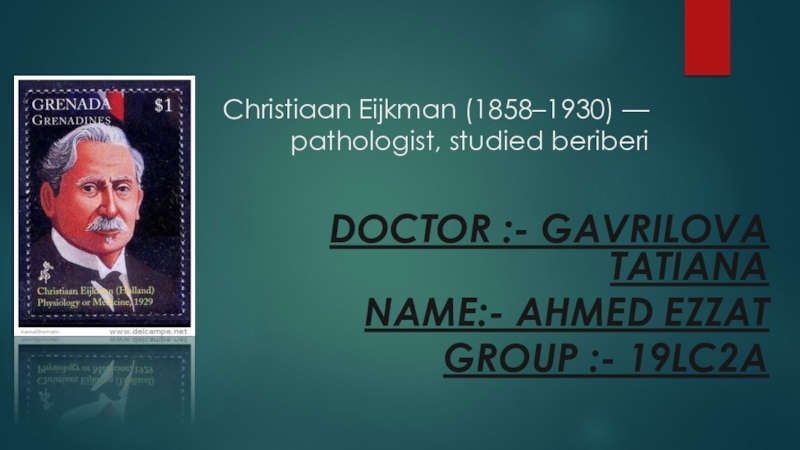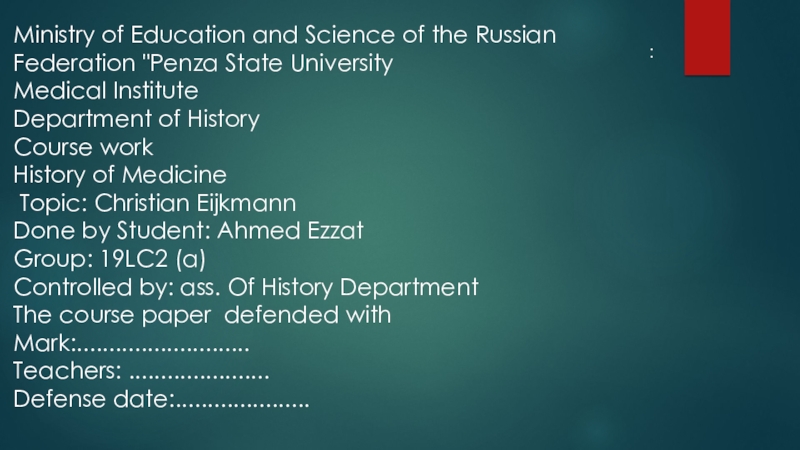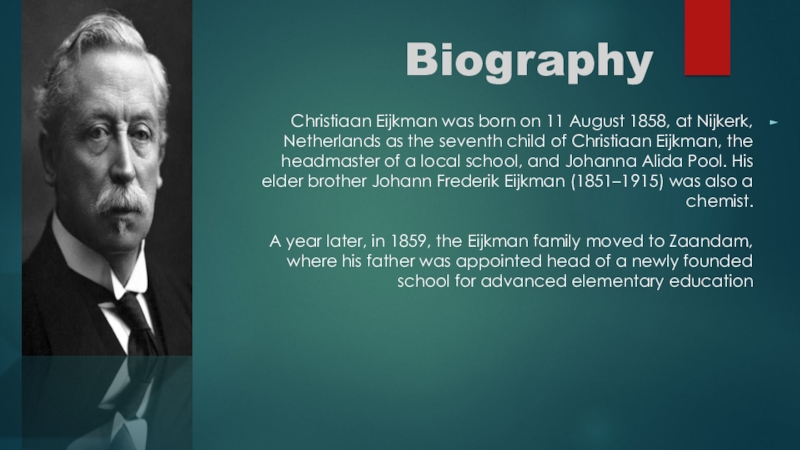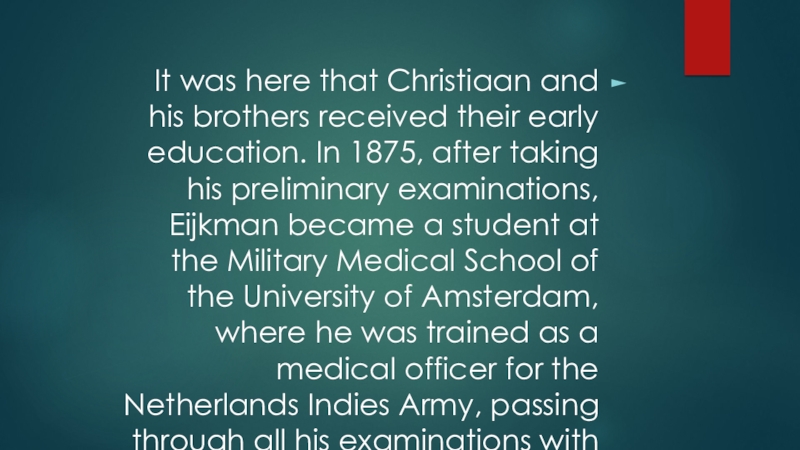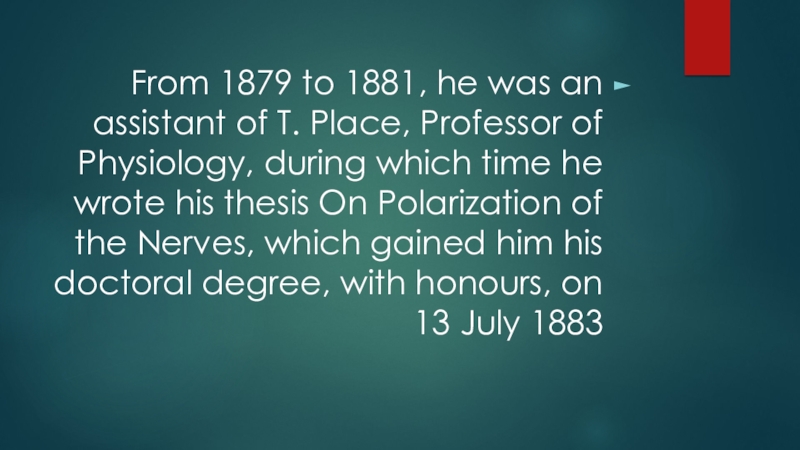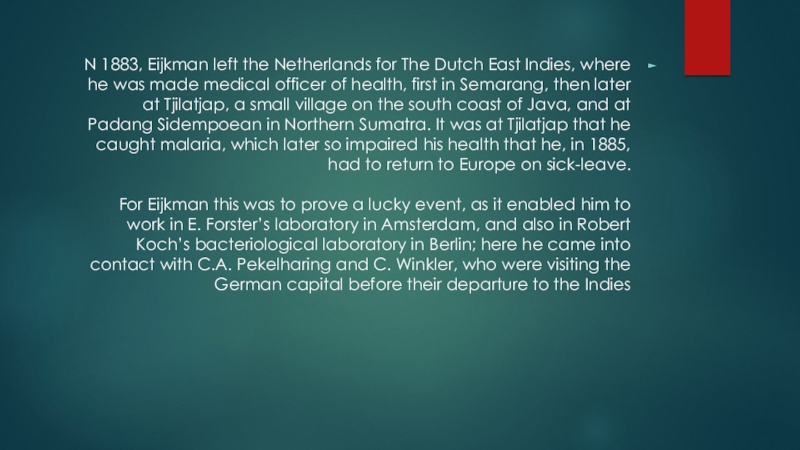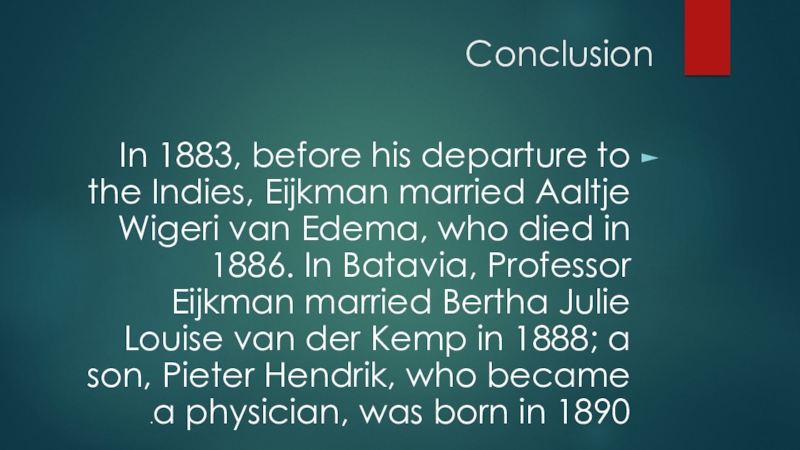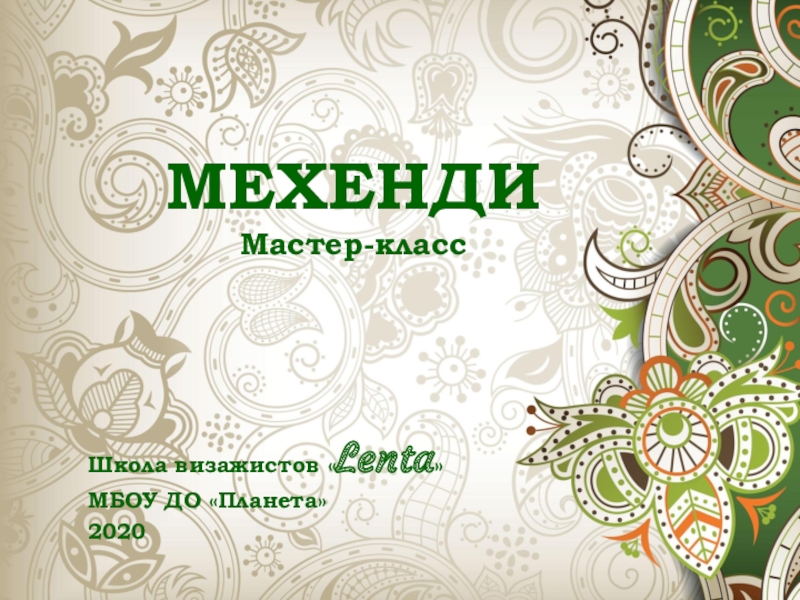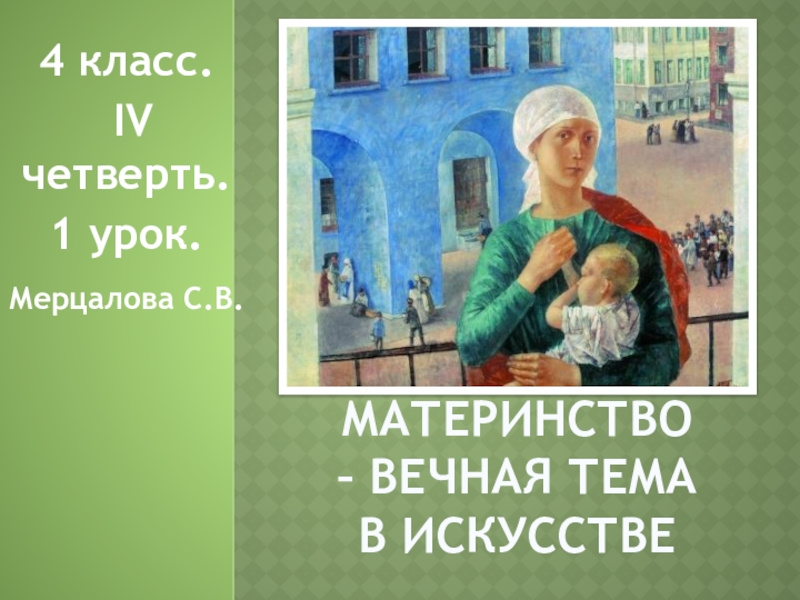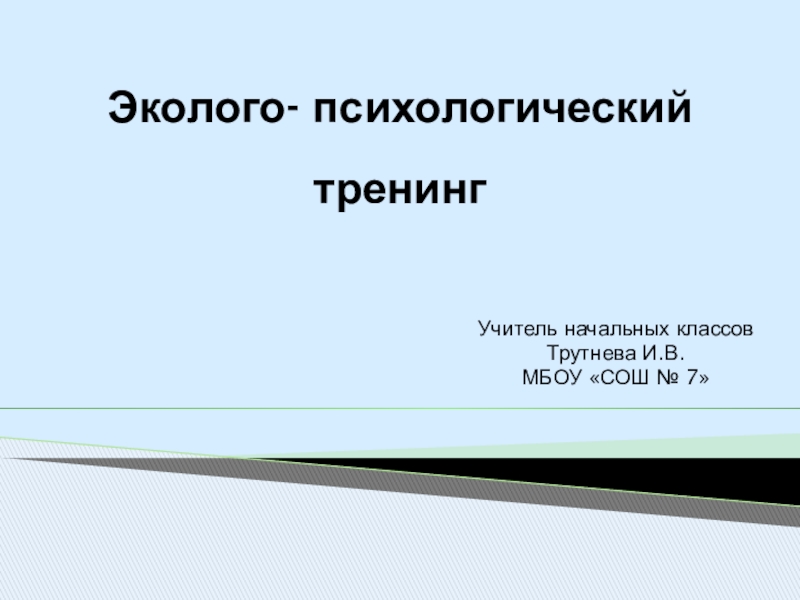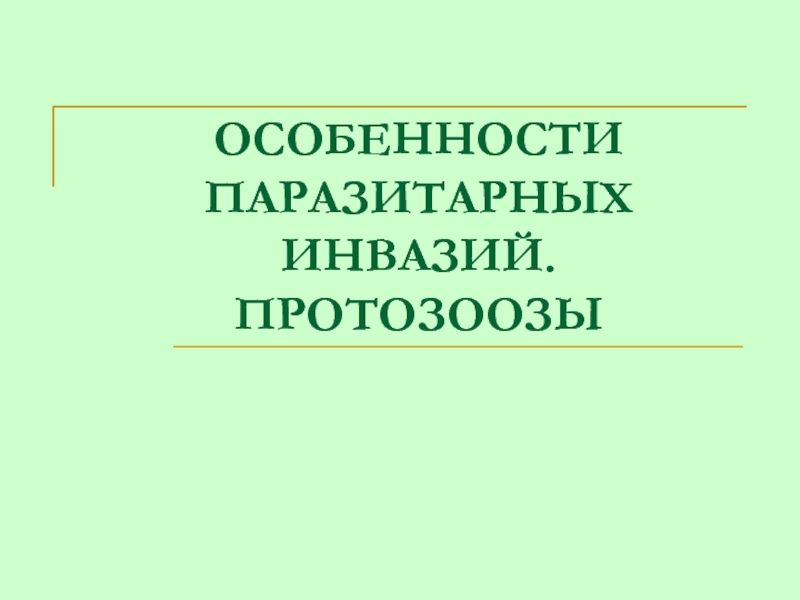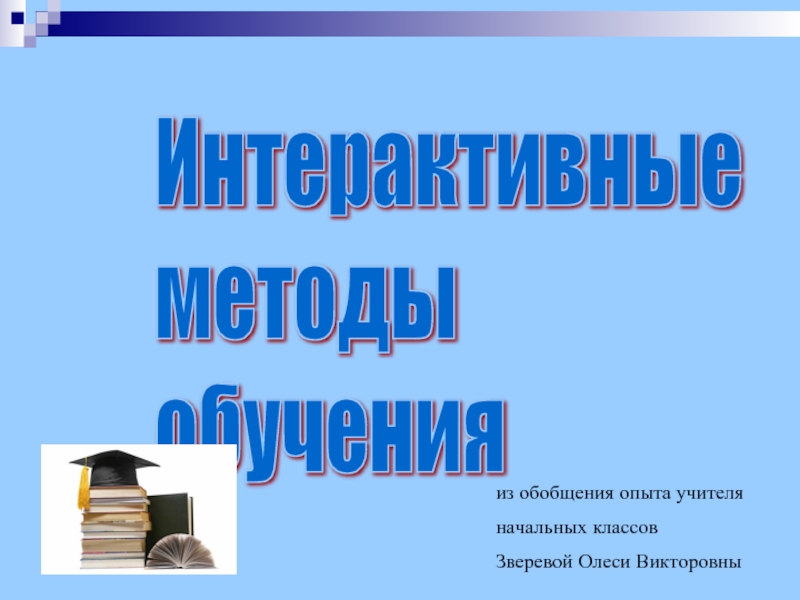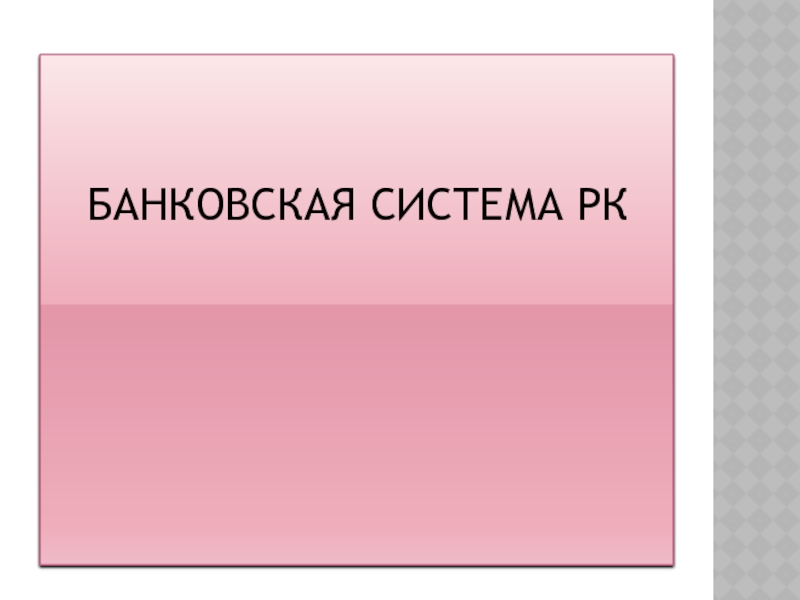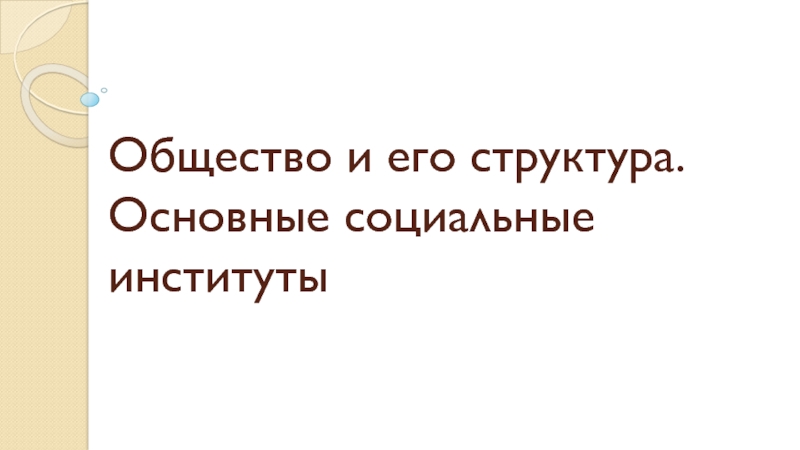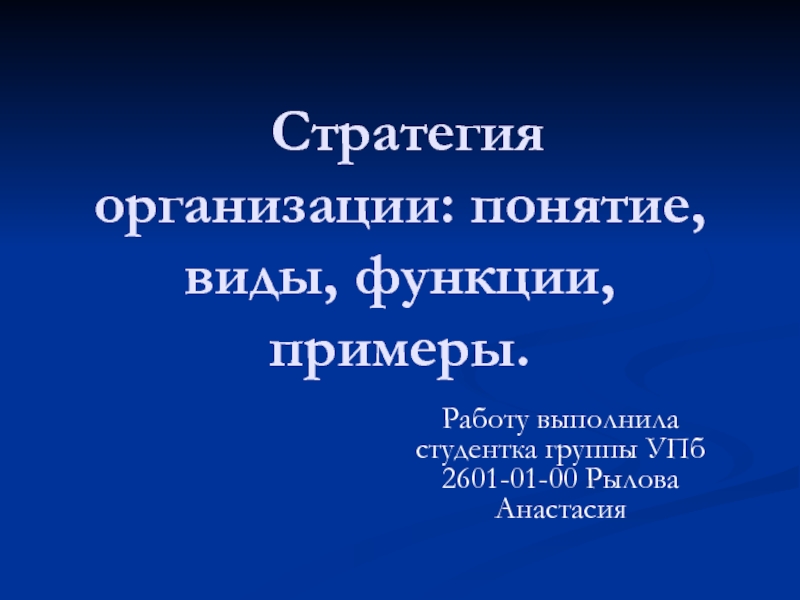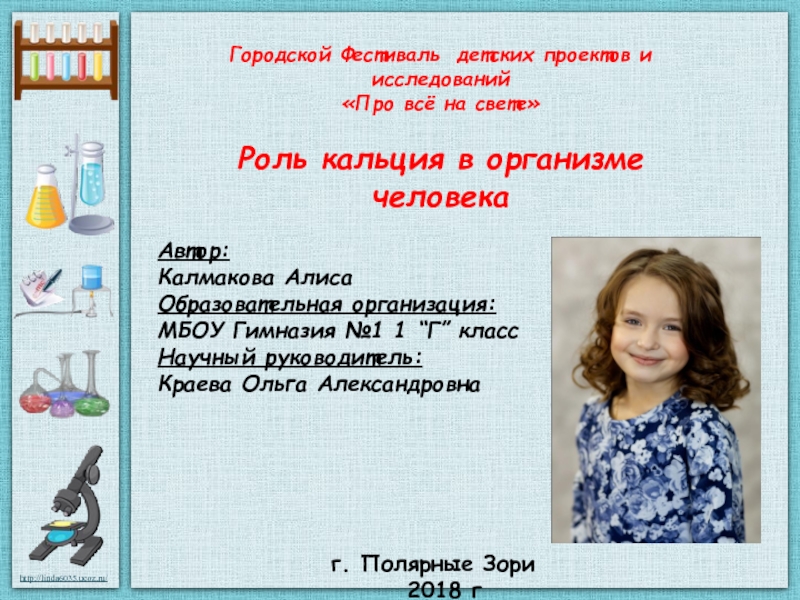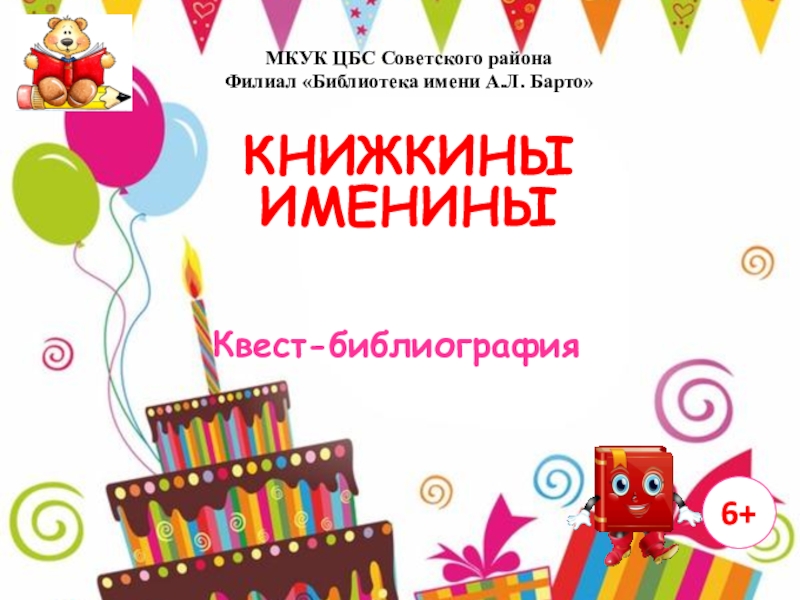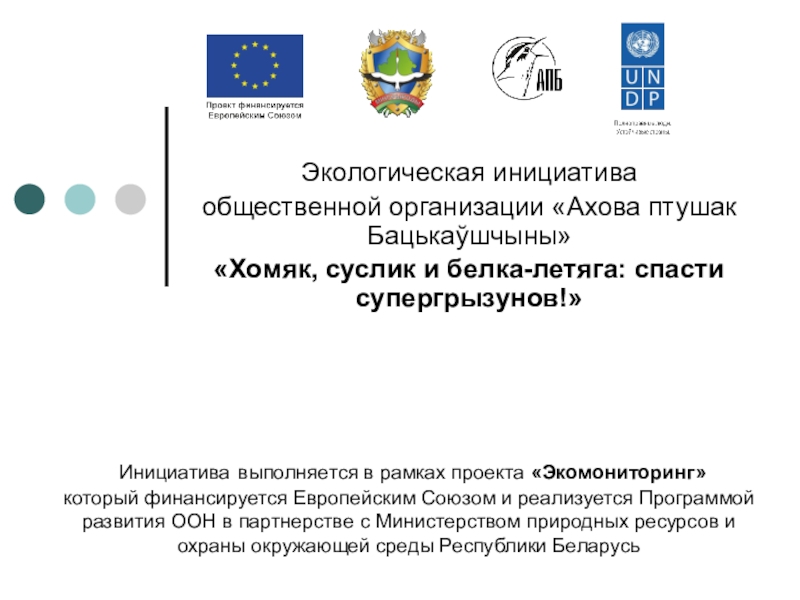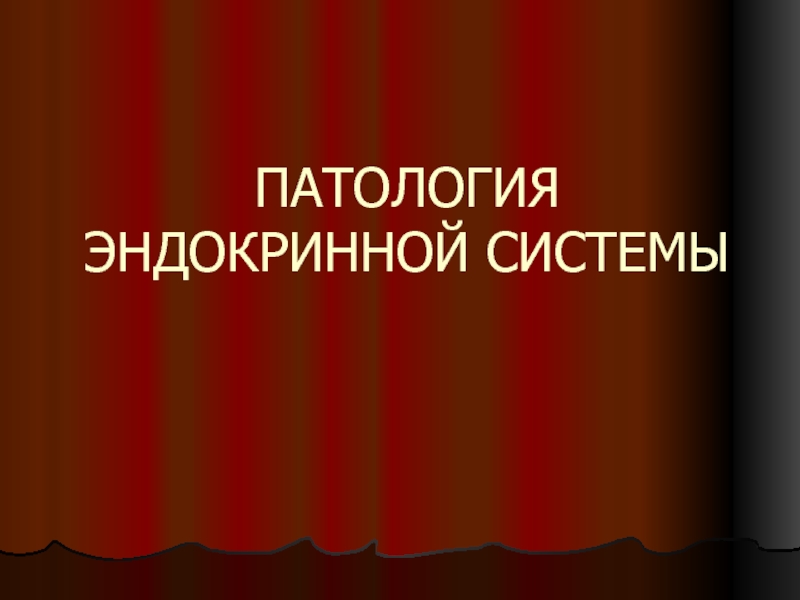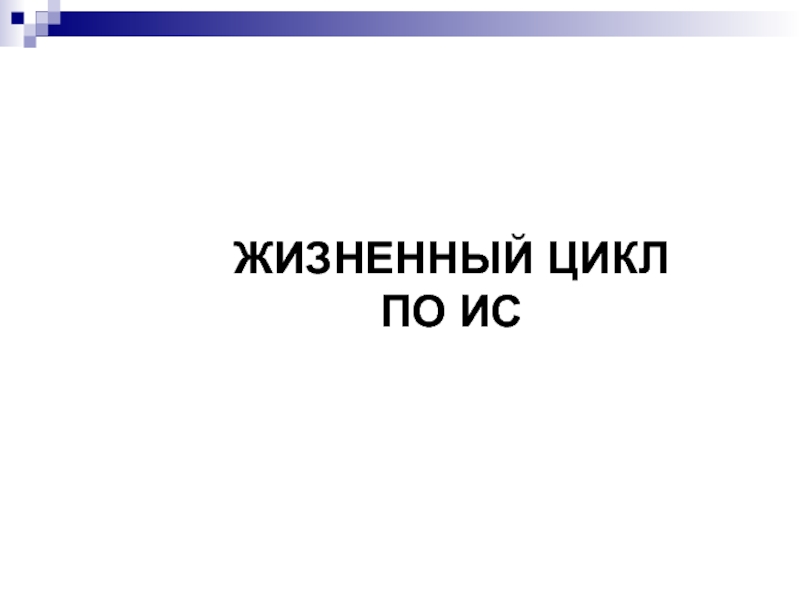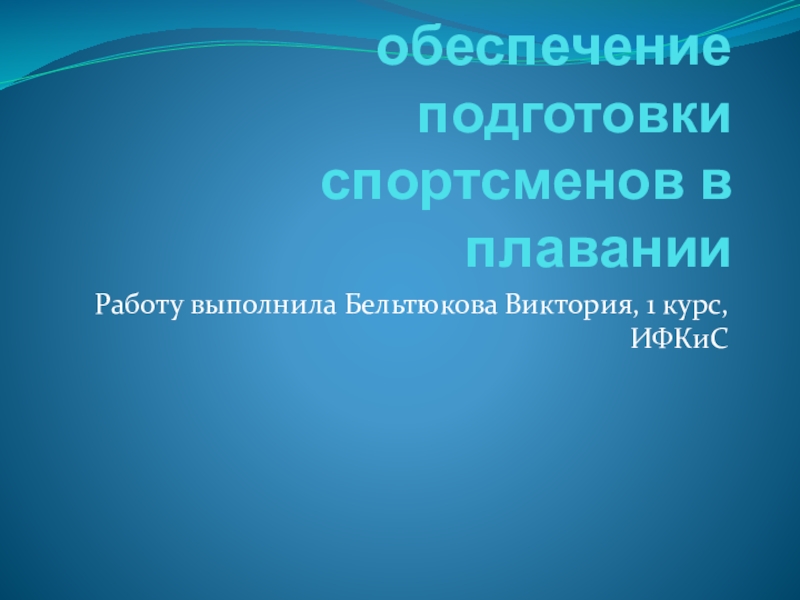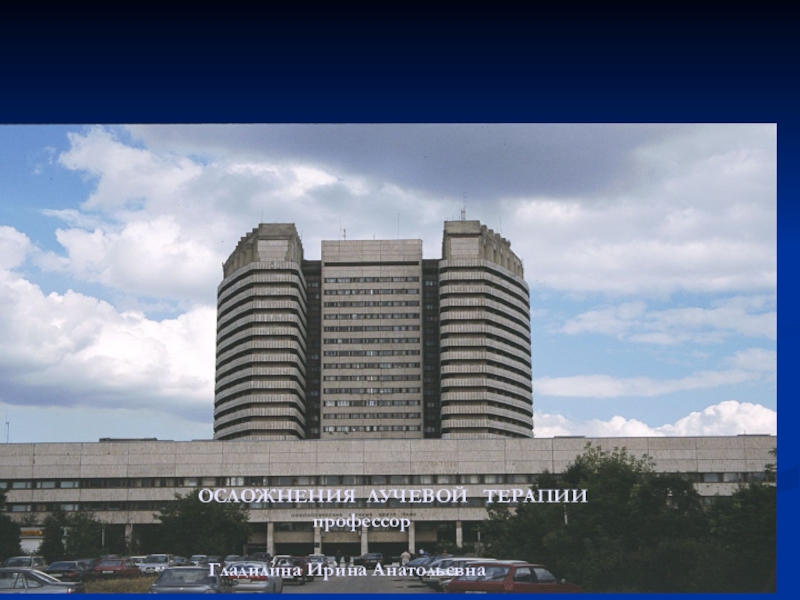Слайд 1Christiaan Eijkman (1858–1930) — pathologist, studied beriberi
Doctor :- Gavrilova Tatiana
Name:- Ahmed Ezzat
Group :- 19lc2a
Слайд 2:
Ministry of Education and Science of the Russian Federation "Penza
State University
Medical Institute
Department of History
Course work
History
of Medicine
Topic: Christian Eijkmann
Done by Student: Ahmed Ezzat
Group: 19LC2 (a)
Controlled by: ass. Of History Department The course paper defended with
Mark:...........................
Teachers: ......................
Defense date:.....................
Слайд 3Biography
Christiaan Eijkman was born on 11 August 1858, at
Nijkerk, Netherlands as the seventh child of Christiaan Eijkman, the
headmaster of a local school, and Johanna Alida Pool. His elder brother Johann Frederik Eijkman (1851–1915) was also a chemist.
A year later, in 1859, the Eijkman family moved to Zaandam, where his father was appointed head of a newly founded school for advanced elementary education
Слайд 4It was here that Christiaan and his brothers received their
early education. In 1875, after taking his preliminary examinations, Eijkman
became a student at the Military Medical School of the University of Amsterdam, where he was trained as a medical officer for the Netherlands Indies Army, passing through all his examinations with honours
Слайд 5From 1879 to 1881, he was an assistant of T.
Place, Professor of Physiology, during which time he wrote his
thesis On Polarization of the Nerves, which gained him his doctoral degree, with honours, on 13 July 1883
Слайд 6N 1883, Eijkman left the Netherlands for The Dutch East
Indies, where he was made medical officer of health, first
in Semarang, then later at Tjilatjap, a small village on the south coast of Java, and at Padang Sidempoean in Northern Sumatra. It was at Tjilatjap that he caught malaria, which later so impaired his health that he, in 1885, had to return to Europe on sick-leave.
For Eijkman this was to prove a lucky event, as it enabled him to work in E. Forster’s laboratory in Amsterdam, and also in Robert Koch’s bacteriological laboratory in Berlin; here he came into contact with C.A. Pekelharing and C. Winkler, who were visiting the German capital before their departure to the Indies
Слайд 7Eijkman was Director of the "Geneeskundig Laboratorium" (Medical Laboratory) from
15 January 1888 to 4 March 1896, and during that
time he made a number of his most important researches. These dealt first of all with the physiology of people living in tropical regions. He was able to demonstrate that a number of theories had no factual basis. Firstly he proved that in the blood of Europeans living in the tropics the number of red corpuscles, the specific gravity, the serum, and the water content, undergo no change, at least when the blood is not affected by disease which will ultimately lead to anaemia. Comparing the metabolism of the European with that of the native, he found that in the tropics as well in the temperate zone, this is entirely governed by the work carried out. Neither could he find any disparity in respiratory metabolism, perspiration, and temperature regulation. Thus Eijkman put an end to a number of speculations on the acclimatization of Europeans in the tropics which had hitherto necessitated the taking of various precautions.
Слайд 8Contribution to medicine
Eijkman had been sent to the Dutch East
Indies to study beriberi, a disease of the peripheral nerves,
but his discovery of the cause was accidental. He noticed the symptoms of beriberi in some chickens used in his laboratory when their feed had been altered for a few months. During that time, chickens in the laboratory had been fed leftover rice from military rations, until a new cook refused to allow military rice to be fed to civilian animals. Rice was then purchased from another source, and the birds soon recovered.[3] During the months that the chickens developed beriberi, the feed had been polished rice, and when the birds’ diet was switched back to unpolished rice, the birds recovered in a few days. Eijkman surmised that polished rice lacked a dietary component found in unpolished rice, and that beriberi was caused by depriving the body of this component, which he called "the anti-beriberi factor". Subsequently, Eijkman was able to prove that the disease was not caused by blood contamination, respiratory metabolism, perspiration, or seasonal or temperature variation. He suspected the disease was caused by an unknown bacteria
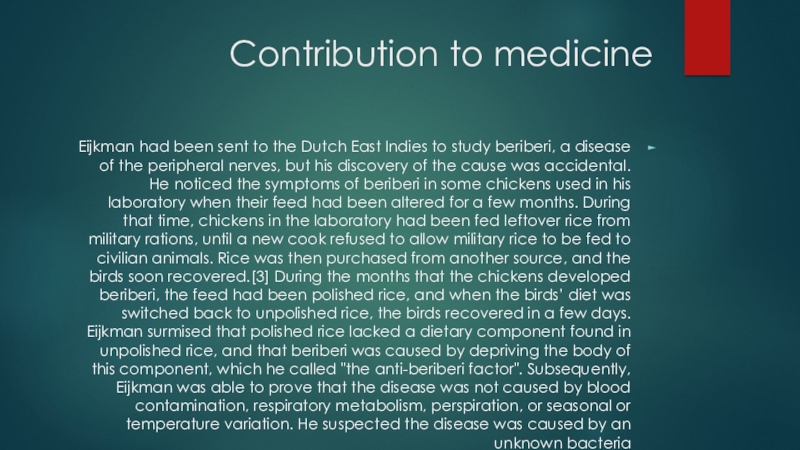
Слайд 9In 1898 he became successor to G. Van Overbeek de
Meyer, as Professor in Hygiene and Forensic Medicine at Utrecht.
His inaugural speech was entitled Over Gezondheid en Ziekten in Tropische Gewesten (On health and diseases in tropical regions). At Utrecht, Eijkman turned to the study of bacteriology, and carried out his well-known fermentation test, by means of which it can be readily established if water has been polluted by human and animal defecation containing coli bacilli. Another research was into the rate of mortality of bacteria as a result of various external factors, whereby he was able to show that this process could not be represented by a logarithmic curve. This was followed by his investigation of the phenomenon that the rate of growth of bacteria on solid substratum often decreases, finally coming to a halt. Beyerinck’s auxanographic method was applied on several occasions by Eijkman, as for example during the secretion of enzymes which break down casein or bring about haemolysis, whereby he could demonstrate the hydrolysis of fats under the influence of lipases.
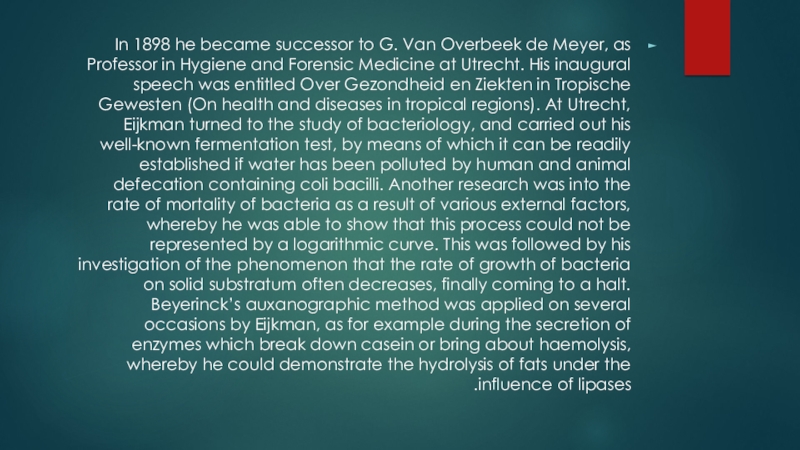
Слайд 10Awards and Legacy
In 1907, Eijkman was appointed Member of the
Royal Netherlands Academy of Arts and Sciences, after having been
Correspondent since 1895.[4] The Dutch Government conferred upon him several orders of knighthood, whereas on the occasion of the 25th anniversary of his professorship a fund was established to enable the awarding of the Eijkman Medal. But the crown of all his work was the award of the Nobel Prize in 1929.
Eijkman was holder of the John Scott Medal, Philadelphia, and foreign associate of the National Academy of Sciences in Washington. He was also honorary fellow of the Royal Sanitary Institute in London.
To honor his dedication, the government of Indonesia named his research center on pathology and bacteriology the Eijkman Institute for Molecular Biology.
Слайд 11Conclusion
In 1883, before his departure to the Indies, Eijkman
married Aaltje Wigeri van Edema, who died in 1886. In
Batavia, Professor Eijkman married Bertha Julie Louise van der Kemp in 1888; a son, Pieter Hendrik, who became a physician, was born in 1890.
